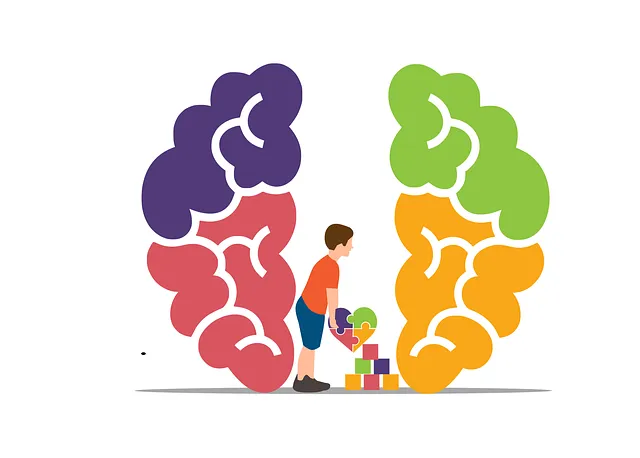Social skills training is a transformative approach to mental health care, as advocated by Kaiser Permanente behavioral health services Golden. By addressing the impact of social interactions on psychological wellness, this program empowers individuals with improved communication, empathy, and cultural sensitivity. Through role-playing, group therapy, and mindfulness exercises, participants build confidence, reduce isolation, and enhance their coping mechanisms. Kaiser Permanente's initiative aims to destigmatize mental health, revolutionize support systems, and foster a more inclusive society, ultimately improving the quality of life for individuals managing conditions like anxiety, depression, and schizophrenia.
Social skills training is a powerful tool for managing mental health conditions, offering individuals the chance to connect and thrive. This article delves into the crucial link between social skills and mental well-being, highlighting the support provided by Kaiser Permanente Behavioral Health Services through specialized programs. We explore common mental health challenges that impact social interaction and present effective strategies for training. Learn the golden rules for practicing these skills in daily life, empowering yourself or a loved one on the path to improved mental health with enhanced social connections.
- Understanding the Link Between Social Skills and Mental Health
- The Role of Kaiser Permanente Behavioral Health Services in Training
- Identifying Challenges: Common Mental Health Conditions and Social Interaction
- Strategies for Effective Social Skills Training
- Golden Rules for Practicing and Integrating Social Skills in Daily Life
Understanding the Link Between Social Skills and Mental Health

Social skills play a pivotal role in mental health and well-being, often overlooked yet profoundly impactful. The connection between social interactions and psychological wellness is a growing area of interest for mental health professionals. Kaiser Permanente behavioral health services Golden emphasizes this relationship, recognizing that effective communication, empathy building strategies, and cultural sensitivity in mental healthcare practice are essential components of holistic treatment.
The absence or weakness of social skills can lead to feelings of isolation, low self-esteem, and even exacerbation of existing mental health conditions. Conversely, developing these skills can foster better connections with others, improve support systems, and promote positive coping mechanisms. By integrating empathy building strategies into therapy, mental healthcare providers in Golden can create a safe space for individuals to navigate complex social situations, build self-confidence, and enhance their overall quality of life.
The Role of Kaiser Permanente Behavioral Health Services in Training

Kaiser Permanente Behavioral Health Services plays a pivotal role in empowering individuals with mental health conditions through comprehensive social skills training. Golden, as one of their key initiatives, focuses on fostering connections and enhancing social interactions for those navigating various challenges. This program recognizes the profound impact of social support in recovery journeys, especially for individuals dealing with trauma or burnout.
Their expertise lies in tailoring interventions to meet diverse needs, offering not just Trauma Support Services but also innovative strategies for healthcare providers to implement. By integrating public awareness campaigns into their approach, Kaiser Permanente aims to destigmatize mental health issues and encourage early intervention. This holistic training model promises to revolutionize support systems, ensuring a more inclusive and compassionate environment for all.
Identifying Challenges: Common Mental Health Conditions and Social Interaction

Mental health conditions can significantly impact an individual’s ability to engage in social interactions, leading to a cascade of challenges. According to Kaiser Permanente behavioral health services Golden, conditions like anxiety disorders, depression, and schizophrenia often manifest as social withdrawal, making it difficult for affected individuals to maintain relationships or participate in community activities. This isolation exacerbates symptoms and hinders recovery, emphasizing the need for targeted interventions.
Social skills training is a crucial component of addressing these challenges. By focusing on mental wellness journaling exercises and providing guidance for effective communication, individuals with mental health conditions can learn to navigate social situations more comfortably. Additionally, mental illness stigma reduction efforts play a pivotal role in encouraging participation. Building confidence through structured activities not only fosters better social connections but also empowers individuals to actively manage their mental wellness in various settings.
Strategies for Effective Social Skills Training

Social Skills Training plays a pivotal role in managing mental health conditions, especially for individuals seeking support from Kaiser Permanente behavioral health services. Effective training strategies go beyond mere instruction; they involve practical exercises and real-world applications to foster sustainable change. One of the key approaches is role-playing scenarios that simulate everyday social interactions, allowing participants to practice communication strategies tailored to their specific needs. This hands-on method not only enhances confidence but also enables individuals to anticipate and navigate challenging situations more effectively.
Additionally, group therapy sessions facilitated by Golden behavioral health experts provide a safe space for peer support and shared experiences. Here, members learn from one another’s successes and setbacks, fostering a sense of community and reducing feelings of isolation often associated with mental health conditions. Incorporating Depression Prevention techniques and Stress Reduction Methods within these interactions further strengthens the training’s impact. Through open dialogue, participants develop Communication Strategies that promote empathy, understanding, and effective problem-solving—essential tools for building and maintaining healthy relationships.
Golden Rules for Practicing and Integrating Social Skills in Daily Life

Practicing social skills is a journey that requires dedication and self-compassion, especially when navigating mental health conditions. The Kaiser Permanente behavioral health services emphasize the importance of integrating these skills into daily life for meaningful improvement. A key approach involves setting achievable goals and practicing in safe, supportive environments. Start with small interactions, like initiating conversations or actively listening during group settings, gradually building up to more challenging scenarios.
The “Golden Rules” for successful implementation include: 1) Consistency: Regular practice strengthens new behaviors; 2) Patience: Allow yourself and others time to adjust and learn; 3) Feedback: Seek constructive input from trusted friends or professionals to refine your approach. By incorporating these principles, individuals can enhance their social interactions, foster deeper connections, and actively contribute to public awareness campaigns focused on mental health policy analysis and advocacy, ultimately cultivating a more compassionate society.
Social skills training is a powerful tool offered by organizations like Kaiser Permanente behavioral health services, specifically tailored to improve the lives of individuals with mental health conditions. By understanding the connection between social interactions and mental well-being, these programs empower folks to navigate social challenges, fostering better relationships and enhanced overall health. The ‘Golden Rules’ provided offer practical guidance for integrating these skills into daily life, ensuring long-lasting benefits.






